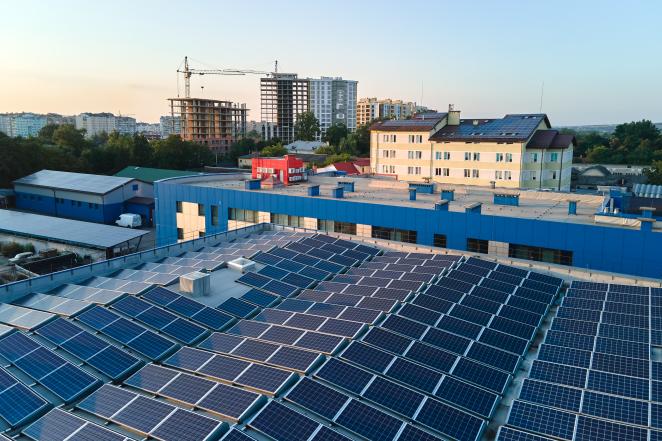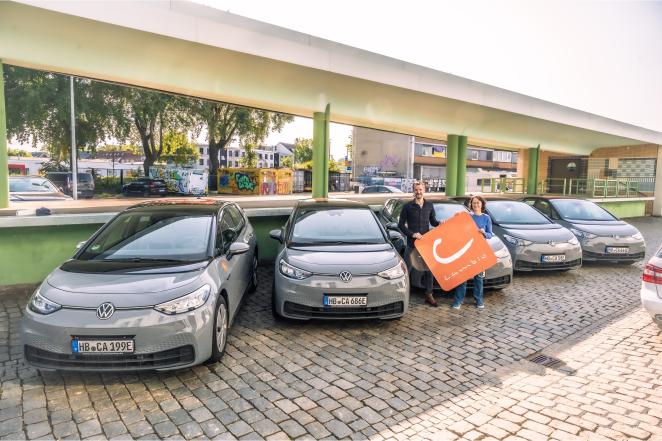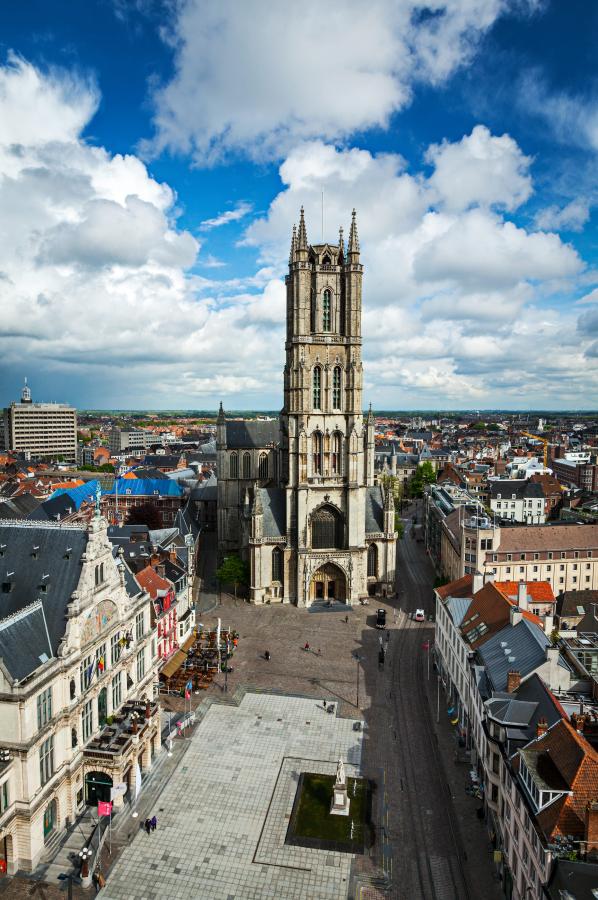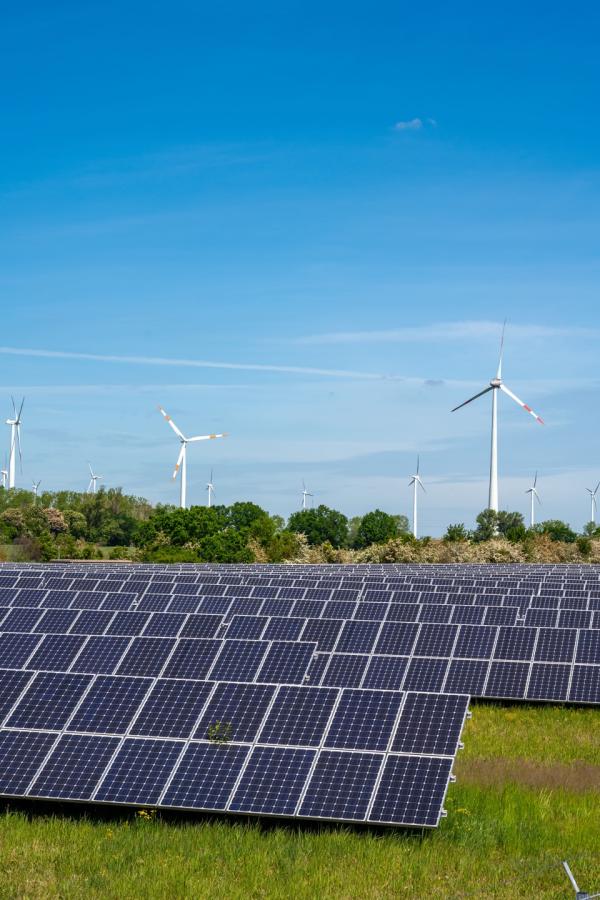Europe’s towns and cities are increasingly powered locally, demanding new action and planning from local authorities. The €5.1m Interreg North Sea-funded initiative Cities for Open and Participative Planning for Electricity Grid Resilience (COPPER) will develop and pilot state-of-the-art solutions for energy planning in decentralised energy systems in six frontrunner municipalities. Running until 2027, COPPER aims to lead the way for Local Energy Action Planning (LEAP) to become standard in local authority energy departments across Europe.

The new role for Europe's municipalities - city-wide energy coordinator
From solar-powered schools and hospitals to electric vehicles on every street, Europe’s upcoming local energy transition is a great opportunity for cleaner air, local green jobs, and a decarbonised power supply.
But producing, consuming and managing more electricity locally presents new challenges for Europe’s towns and cities. Growing demand for electric vehicles (EVs) and the electrification of heating and cooling is putting unprecedented stress on Europe’s local electricity grids. Add rooftop solar panels with less reliable patterns of generation, and managing these new pressures becomes a city-wide concern. Without action, local authorities could soon be forced to delay or deny plans for new homes, warehouses, shops, hospitals, schools or EV chargers as the grid struggles to cope.
Achieving a smooth local energy transition means local authorities must take on new planning and action responsibilities to build a strong and reliable local energy system. Working with Distribution System Operators (DSOs), local businesses, building owners, and many more stakeholders, local authorities will be the stewards of a fit-for-purpose local energy system.

COPPER will empower Europe’s municipalities to lead their local energy transition
To prepare Europe’s local authorities to coordinate local energy systems, a European-wide alliance of frontrunner municipalities, research organisations and DSO representatives has formed to test new technologies, business models and planning methods.
Funded by the Interreg North Sea programme, the COPPER initiative is the first Europe-wide collaboration to test and demonstrate local energy action plans (LEAP), a bundle of techniques and activities that will enable local authorities to drive locally-powered cities.
Through a four-year process, COPPER will:
Deliver six first-of-a-kind pilots for local authority-led energy planning, from logistic parks to electric vehicle (EV) fleets to entire neighbourhoods.
Explore ways that DSOs and local authorities can work together to build a local energy system of storage and flexibility technologies, policies, market incentives and collaborations to help locally-powered cities thrive.
Build data models and a digital toolkit to boost local authority’s capacity to understand and steer their local energy system

Meet the Alliance
COPPER plugs local energy changemakers from across the North Sea region of Europe into a transnational taskforce for local energy planning and action. Each partner will test a different aspect or use case to provide a distributed but comprehensive demonstration for local energy action planning:

Municipalities and DSOs
City of Ghent (Project Lead)
Will support a flexibility pilot for the upcoming 'all-electric' neighbourhood of Mariakerke, in partnership with the University of Ghent and working closely with local DSO Fluvius.
City of Bremen
Will partner with shared mobility provider Cambio Bremen to pilot new electric vehicle infrastructure for 20 EVs in car-sharing stations, aiming to monitor, assess and plan for the effects of EV mobility on the city’s grid.
City of Antwerp
Will pilot solutions to reduce the peak demand of electric vehicles (EVs) and electric heating, using energy management software and bi-directional charging to smooth daily demand from EVs while updating its Strategic Energy Vision for heating.
City of Dordrecht
Will support one of the first climate-neutral business parks in Europe, DistriPark, with a pilot for energy planning and flexibility support.
Municipality of Fredericia
Will test the creation of a virtual energy community to support its growing need for flexibility as it invests in green hydrogen storage and the electrification of its local industry.
DSOs
Varberg Energi
As the municipal-owned DSO for the Swedish town of Varberg, will build a city-wide virtual power plant within COPPER. The Nätflex network will provide flexibility services to the town of 35,000 people.

Supporting Partners
Cluster organisations
Climate Alliance
Brings its membership of 2,000 cities to ensure the key lessons from COPPER pilots are exchanged all across Europe, aiming to kick-start a wave of local energy action planning across Europe.
E.DSO
Brings its position as a European representative for Distribution System Operators (with 36 DSOs from 19 countries) to bring the key perspective of Europe’s DSOs to the initiative and find collaboration models between DSOs and municipalities.
Cleantech International
Brings its global innovation community of climate technology businesses to support a series of matchmaking workshops between solution providers and European cities.
SMEs
cambio Mobilitätsservice & cambio Bremen
The local branch of cambio Mobilitätsservice, cambio Bremen, will partner with the city of Bremen for 50/50 ownership of new electric vehicle infrastructure for 20 EVs in car-sharing stations. cambio Mobilitätsservice will work with local DSO Wesernetz to analyse data and produce actionable insights for European cities managing city-level shared electric mobility.
Center Denmark
Acts as the project’s provider for data collection, data science and data processing, using their experience collecting and operationalising data from 400,000 Danish households to provide data-driven solutions for the green transition.
Research
University of Aalborg
Will support the Municipality of Frederica to model how electrification and power-to-X (P2X) solutions will impact the grid.
University of Ghent
Will support the City of Ghent with modelling for the transition to an all-electric neighbourhood in Mariakerke, providing policy recommendations to the City and the local DSO Fluvius.
